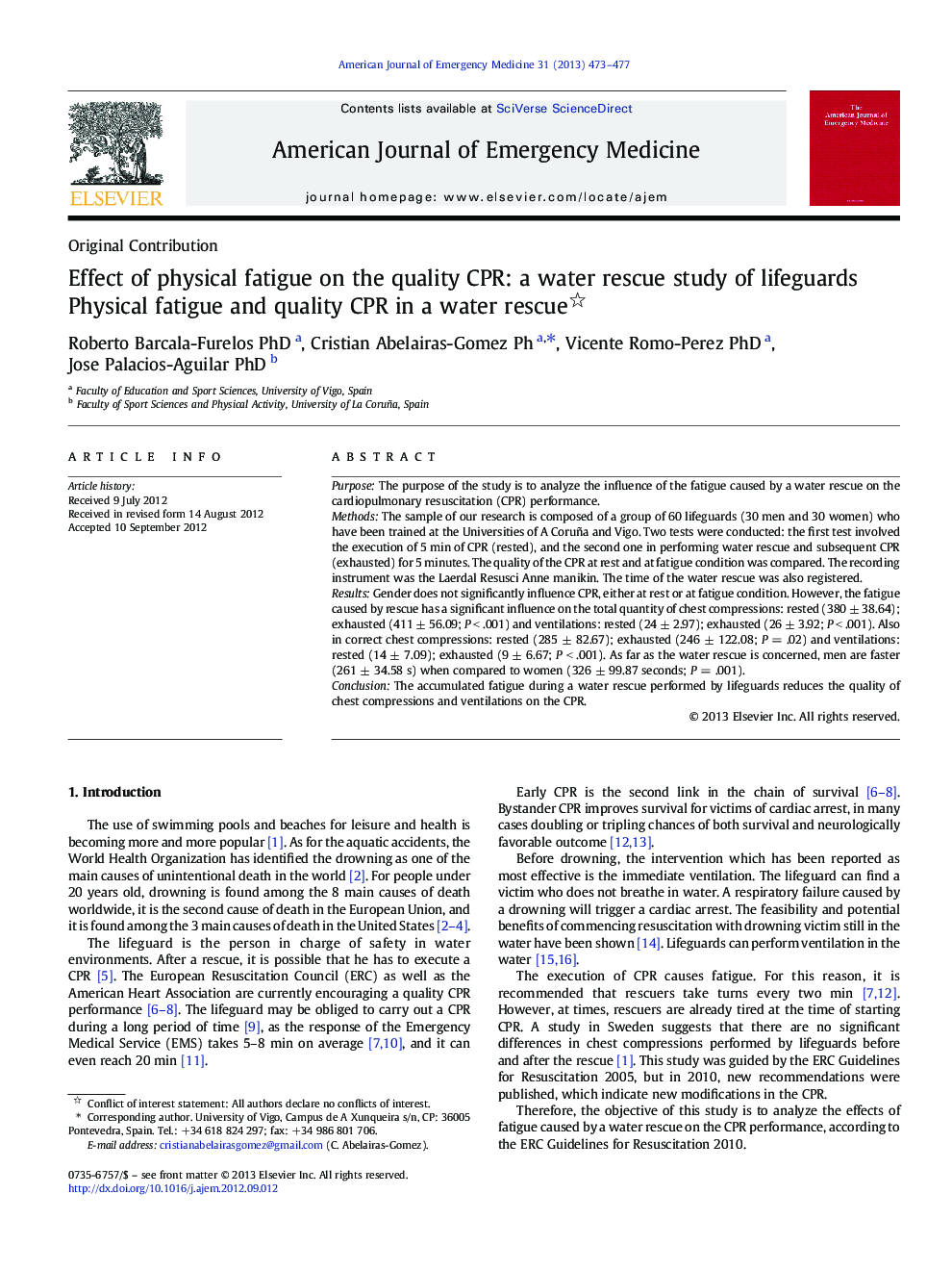| Article ID | Journal | Published Year | Pages | File Type |
|---|---|---|---|---|
| 3223814 | The American Journal of Emergency Medicine | 2013 | 5 Pages |
PurposeThe purpose of the study is to analyze the influence of the fatigue caused by a water rescue on the cardiopulmonary resuscitation (CPR) performance.MethodsThe sample of our research is composed of a group of 60 lifeguards (30 men and 30 women) who have been trained at the Universities of A Coruña and Vigo. Two tests were conducted: the first test involved the execution of 5 min of CPR (rested), and the second one in performing water rescue and subsequent CPR (exhausted) for 5 minutes. The quality of the CPR at rest and at fatigue condition was compared. The recording instrument was the Laerdal Resusci Anne manikin. The time of the water rescue was also registered.ResultsGender does not significantly influence CPR, either at rest or at fatigue condition. However, the fatigue caused by rescue has a significant influence on the total quantity of chest compressions: rested (380 ± 38.64); exhausted (411 ± 56.09; P < .001) and ventilations: rested (24 ± 2.97); exhausted (26 ± 3.92; P < .001). Also in correct chest compressions: rested (285 ± 82.67); exhausted (246 ± 122.08; P = .02) and ventilations: rested (14 ± 7.09); exhausted (9 ± 6.67; P < .001). As far as the water rescue is concerned, men are faster (261 ± 34.58 s) when compared to women (326 ± 99.87 seconds; P = .001).ConclusionThe accumulated fatigue during a water rescue performed by lifeguards reduces the quality of chest compressions and ventilations on the CPR.
